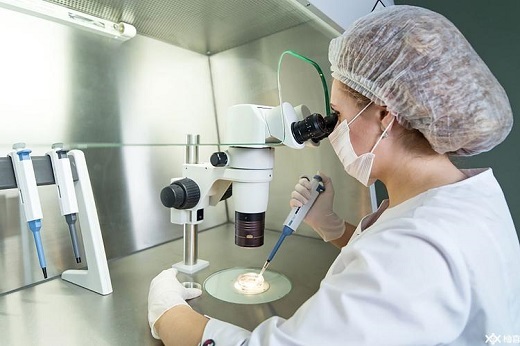多囊肾是一种常见的遗传性疾病,患者的肾脏会出现囊肿,严重影响肾脏功能。对于多囊肾患者而言,生育可能会面临很多困难和风险。随着医学技术的不断进步,多囊肾患者也有了更多的生育选择,其中第三代试管婴儿技术就是一种重要的选择。
Polycystic kidney disease (PKD) is a common genetic disorder characterized by the development of cysts in the kidneys, which can severely impair kidney function. For PKD patients, the prospect of having children can be challenging and risky. However, with the advancement of medical technology, PKD patients now have more options for family planning, and third-generation IVF technology is an important choice among them.

在进行第三代试管婴儿前,多囊肾患者需要接受遗传咨询和基因检测。遗传咨询可以帮助患者了解疾病的遗传规律和风险,为他们做出生育决策提供依据。基因检测可以帮助医生了解患者和潜在孩子的基因情况,以便进行更精准的生育干预和治疗。
Before undergoing third-generation IVF, PKD patients need to receive genetic counseling and genetic testing. Genetic counseling helps patients understand the inheritance pattern and risks of the disease, providing a basis for their reproductive decisions. Meanwhile, genetic testing helps doctors understand the genetic status of patients and potential children, enabling more precise reproductive interventions and treatments.
在第三代试管婴儿过程中,医生会通过体外受精技术获得多个胚胎,并进行基因检测。然后,医生会选取健康的胚胎进行植入,以降低患者生育出患病孩子的风险。这种胚胎选择和植入的方式大大提高了多囊肾患者生育健康后代的可能性。
During the third-generation IVF process, doctors obtain multiple embryos through in vitro fertilization and conduct genetic testing. Then, they select healthy embryos for implantation to reduce the risk of patients having children with the disease. This method of embryo selection and implantation greatly increases the likelihood of PKD patients giving birth to healthy offspring.

对于多囊肾患者而言,怀孕可能会增加肾脏负担,增加并发症的风险。在怀孕期间,患者需要接受严格的孕期管理和监测,包括定期检查肾功能、血压和尿检等,以确保母婴的安全。
For PKD patients, pregnancy may increase the burden on the kidneys and the risk of complications. Therefore, during pregnancy, patients need to undergo strict pregnancy management and monitoring, including regular checks of kidney function, blood pressure, and urine tests, to ensure the safety of both the mother and the baby.
多囊肾患者在分娩方式选择上需要谨慎考虑,因为普通分娩可能会增加肾脏负担,而剖宫产可能会增加手术风险。医生会根据患者的具体情况和胎儿健康状况,为患者提供最合适的分娩方式选择建议。
PKD patients need to carefully consider the choice of delivery method, as vaginal delivery may increase the burden on the kidneys, while cesarean section may increase the risk of surgery. Doctors will provide patients with the most appropriate delivery method based on their specific conditions and the health of the fetus.

对于多囊肾患者而言,母乳喂养可能会对自身健康和肾脏功能产生影响。患者需要在医生的指导下进行母乳喂养决策,并接受育儿指导,以确保自身和孩子的健康。
For PKD patients, breastfeeding may have an impact on their own health and kidney function. Therefore, patients need to make breastfeeding decisions under the guidance of doctors and receive parenting guidance to ensure the health of both themselves and their children.
多囊肾患者生育后需要进行长期的随访和治疗。医生会定期检查患者的肾功能和健康状况,及时发现并处理任何并发症和问题,以确保患者和孩子的健康。
PKD patients need long-term follow-up and treatment after giving birth. Doctors will regularly check the patient's kidney function and health status, promptly identify and address any complications and issues to ensure the health of the patient and the child.
通过第三代试管婴儿技术,多囊肾患者有了更多的生育选择和可能性。这一过程仍然需要患者和医生共同努力,以确保母婴的健康和安全。希望随着医学技术的不断进步,多囊肾患者能够更容易地实现他们的生育愿望。
Through third-generation IVF technology, PKD patients have more reproductive choices and possibilities. However, this process still requires the joint efforts of patients and doctors to ensure the health and safety of both the mother and the baby. With the continuous advancement of medical technology, it is hoped that PKD patients can more easily realize their reproductive aspirations.